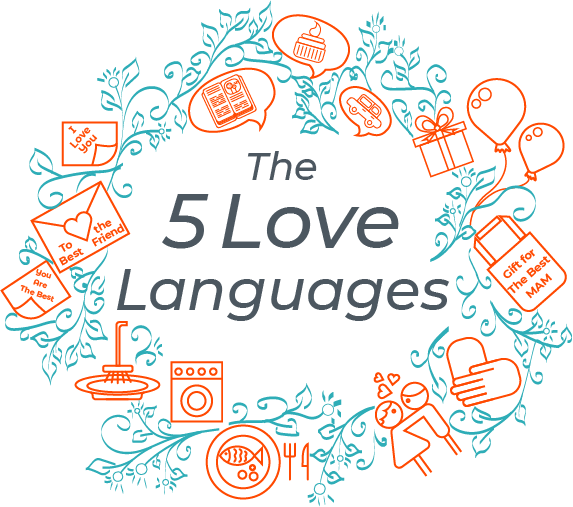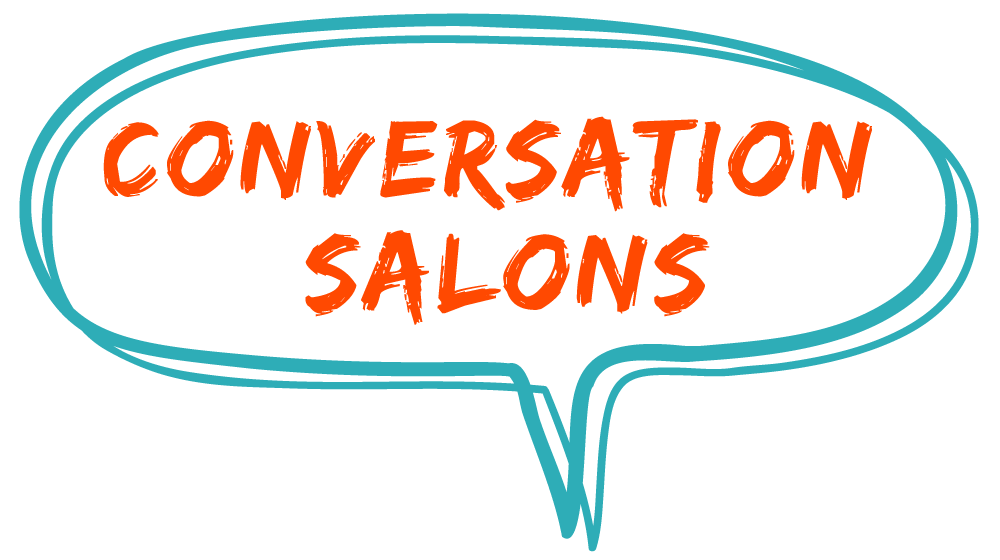
By Gillian Arigho
It’s all Greek to me!
Have you ever heard of love languages? Do you know what yours are? I first came across them on Facebook; a friend of mine who is a fiend for online quizzes (ranging from the Myers-Briggs Type Indicators to “What Kind of Potato are You?”) shared her results on her news feed. Though the question of whether I’m a Maris Piper or a Russet doesn’t generally keep me up at night, the notion of love languages did catch my attention. One Google search later I found that the concept was introduced to the public by Dr Gary Chapman through his 1992 book The Five Love Languages: How to Express Heartfelt Commitment to Your Mate. After deciding to pick up a copy, I was pleasantly surprised to find it had answered quite a few questions I didn’t even know I had about myself.
Chapman proposes that everyone has one primary and one secondary language that they cherish most. He suggests that people tend to give love in the way that they prefer to receive it; for that is their definition of love. In order to identify someone else’s primary language we have to observe how they show us love, while taking note of what they request from us most, as well as any negative responses they have to certain behaviours. So, what are they?
- Words of Affirmation Words
Words of affirmation are words or phrases said to a partner to make them feel secure, confident and comfortable about who they are, what they do and what they mean to you. It ranges anywhere from words of encouragement, compliments, reminders that you love and believe in them, remarks of praise etc. Any verbal or written positive affirmation has them glowing from the outside in.
- Physical Touch
Physical touch is fairly self explanatory. For some people, nothing is more impactful than physical connection with their partner. An arm around the shoulder, holding hands, cuddling, kissing, hugging and sex are all examples of physical touch that can make a person feel more connected and safe in their relationship. This love language places somatic contact and emotional connection at the same or similar levels of importance in a relationship.
- Quality Time
Quality Time requires someone’s undivided attention. No phones, no televisions, no distractions. When spending quality time together, it’s not about where you are or what you’re doing, it’s about who you’re with – and only that. It requires both parties to be fully engaged and present during that time. In devoting the scarce resource that is time to your partner, it shows them how important they are to you and makes them feel loved and prioritised.
- Acts of Service
Any act that requires some thought or effort, that is done to make life easier for your partner, is considered a loving act of service. In removing a task from their busy day or to-do list, it translates as love and respect for them and their time. Quite literally, actions speak louder than words. The task is done with positivity and with your partner’s benefit in mind – not out of obligation.
- Receiving Gifts
The fifth love language is gift receiving. Not necessarily as materialistic as one might think, the act of giving a gift is seen as a symbol of love. It’s less about what the item is and more about the thought and meaning behind it. The receiver knows that the giver was thinking of them while obtaining the object/experience, and that their joy was central to their choice. It doesn’t matter if it’s a diamond ring or a chocolate bar; the feeling will still be of being adored enough to receive something from their partner. “It’s the thought that counts” is the mantra for this love language.
In many instances couples won’t have heard of love languages. Trouble in paradise? Never heard of it. They just so happen to have similar love languages and therefore fulfill each other’s needs without conscious effort. In an alternate circumstance where languages clash, crossed wires often lead to frustration and communication breakdowns. Picture a husband, whose love language is acts of service, has just hoovered the entire house and hung out the washing, only to be met with indifference from his wife. Being someone who favours quality time, she sees this as simply performing household chores – not an act of love. Her nonchalant response leaves him feeling unappreciated, and she can’t understand why. Not having the tools to identify or express what they need from a wholesome relationship, the instances of irritation and dissatisfaction increase over time.
Love Languages in Everyday Life
While Chapman discussed the above in relation to Romantic Love, the premise of these love languages can be seen in everyday aspects of our lives. The above case of misunderstood love could absolutely be seen in a parent-child relationship or between close roommates. After putting the book down I started seeing how the way we interact with friends, family and indeed, strangers, can be heavily influenced by them. I started asking myself questions like the following:
- Are you someone who always compliments others, and do you crave words of affirmation yourself? Likewise, if a friend hasn’t spoken to you in a while do you automatically assume they’re annoyed at you? Do harsh words stick with for a long time? Can you “take a joke” or do you worry about underlying messages?
- Is a hug from a loved one what you need most when feeling sad? Do you appreciate a supportive hand on the shoulder during hard times? Is it imperative you get a goodbye kiss from your child before they head to school? Are you uncomfortable with physical touch? Do you feel somewhat violated by unsolicited, but well-intended touch? (e.g. receiving a hug from someone you don’t know at a funeral – not physical violence or sexual harassment)
- If you see something that reminds you of someone, is your natural instinct to buy it and give it to them? Do you feel appreciated and loved when someone does this for you? Do you put a lot of thought into your gifts? Is it worse to receive a generic, thoughtless gift or none at all?
- Do you do certain tasks to save loved ones the hassle? Are you motivated to make life easier for others? Do you feel cared for when someone takes a job off your hands? When someone fails to do something for you, are you left disheartened or upset?
- Do you love having somebody’s undivided attention? Do you feel most appreciated when with another person and the outside world feels like a blur? If someone postpones a date or a catch-up are you left feeling hurt? If a friend is on their phone while you’re talking to them, do you feel they don’t care about you?
Answer these in relation to romantic love, platonic love and familial love. Do you have the same answer across the board or different languages for each? Think hard about whether this translates to how you treat colleagues, acquaintances and strangers – is there any trace of a love language there? And is your idea of kindness just an extension of your love language?
One Step Further
What I became most fascinated with, however, was how my idea of what love is, or should be, was highly influential in forming opinions about the other people in my life. Almost immediately I could see how my love languages swayed my perception of others toward more positive and negative poles. If we can’t relate to someone else’s language, how do we perceive them?
- When you see someone spoiling their significant other, do you think it’s lovely or over the top? Do you see the receiver of gifts as “spoiled”, bratty or shallow?
- If someone looks directly into your eyes when speaking, full attention on you, would you say they are devoted or too intense? (taking into account it’s an adoring gaze and not the hyper-fixated, unblinking, boring into the soul kind that we’ve all experienced at some point). If a partner spends a lot of time in work and with friends, do you feel invisible?
- If a partner or friend goes out of their way to help a loved one, do you see them as “whipped”? Or as caring?
- Are those who look for compliments just attention seeking or needy? If they give out many compliments, do you see them as fake or meaningless? Surely every compliment they give isn’t sincere?
- If somebody automatically goes in for a hug, are they too intense? Is PDA over the top? Or do you see people who are huggers as warm and open individuals?
After running rings around my mind and answering the barrage of questions above, I confidently concluded that yes; I had minor biases based on my perception of love and all its trimmings. I’d observe small displays of love languages and fill in the gaps of a stranger’s life. Those who I had classified as high maintenance partners, or potential pals I’d concluded as not quite my cup of tea, sometimes weren’t actually that – I just didn’t speak their language. It was oddly reassuring that, in some cases, it wasn’t a matter of black and white incompatibilities driving people apart; rather our hopes, dreams, wants, needs and ideals were getting lost in translation.
Final thoughts…
Though the ways in which we experience love can’t be boiled down to a finite list five bullets long, Chapman’s theory is worth throwing an eye over. To view love as a somewhat conscious communicative process instead of an emotional phenomenon is grounding. It helps rationalise why we gravitate towards certain people and whether that gravitation will successfully take root. Being able to look at relationships in your own life and discern why they ebb and flow served as a reminder that any bond; romantic, friendly, familial or otherwise, requires effort and maintenance. We aren’t one dimensional and one size doesn’t fit all. Be it Spanish, French or Japanese, the best way to learn a language is to put the theory into practice – and what I know now is that Love is no different.
